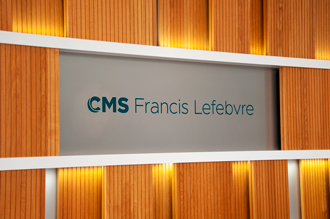
Being updated
The Covid-19 epidemic has forced the President of the Republic and the Government to take urgent measures to curb it, which is having a severe effect on the business of French companies. This is particularly the case for very small companies, SMEs and intermediate-sized companies.
It is within this context that banking institutions are mobilising alongside public ones to deploy support initiatives.
Measures taken by the French Banking Federation (FBF)
In a statement dated 15 March 2020, the FBF announced the following measures agreed by banking institutions to support companies:
- setting up accelerated loan review procedures for difficult liquidity situations, within five days with special attention paid to emergency situations;
- deferring company loan repayments for six months; and
- elimination of penalties and additional costs for payment deferrals and company loans.
Companies should therefore more quickly and easily be able - thanks, in particular, to reduced times for obtaining the agreement of credit committees - to benefit from liquidity loans and renegotiate their payment dates without penalty.
Measures involving Bpifrance
Bpifrance, for its part, relaying the announcements of the government, announced in a statement on 16 March 2020 that it had activated an emergency plan consisting of the following measures:
- granting "Advantage loans" ("prêts Atout"): these loans, the amount of which may vary from 50,000 to 30 million euros, are intended for very small companies, SMEs and intermediate-sized French companies with a business history of at least 12 months, whatever industry they are in (except for specific exclusions: financial intermediation, real estate development, etc.). Their aim is to finance an intermittent need for cash or an exceptional increase in the need for turnover funds (BFR), associated with the economic downturn. These loans, associated with an "attractive" rate, may only be guaranteed by securities and will be depreciable over a period of three to five years (with a possible 12-month grace period for capital);
- granting "Recovery loans" ("prêts Rebond"), in partnership with the regions and for a lower amount than the "Recovery loans" (from 10,000 to 300,000 euros). Also reserved for French very small companies, SMEs and intermediate-sized companies, these loans are granted at a subsidised rate over seven years with a two-year grace period for capital;
- granting a Bpifrance guarantee of 90% for new loans granted over a period from three to seven years, or a bank overdraft over a period from 12 to 18 months, by French banks to cover the liquidity needs of companies of all sizes;
- in relation to factoring, mobilisation of trade receivables and addition of a liquidity credit of 30% of the amount assigned; and
- for loans already granted by Bpifrance, suspension of payments from 16 March 2020 and possible rearrangement upon justified request.
In addition, according to the terms of article 6 of the Amending Finance law no. 2020-289 dated 23 March 2020, the State tasks Bpifrance Financement with granting, on its behalf and in its name, the guarantee of the State to loans granted by French banks between 16 March 2020 and 31 December 2020 to non-financial companies registered in France, within a limit of 300 billion euros.
In accordance with the provisions of the LFR and the associated decree dated 23 March 2020, the guarantee is only granted under the following principal conditions.
In relation to the loan guaranteed by the State ("prêt garanti par l'Etat (PGE)") :
- it must not be associated with any guarantee or security;
- it must include a minimum grâce period of 12 months and a clause allowing the borrower to choose to depreciate it over an additional period of between 1 and 5 years (decree, art. 2) ;
- it must lead to the level of assistance granted to the borrower by the lender that benefits from the guarantee being higher than the level of assistance provided by this lender to the borrower concerned on 16 March 2020, except by application of the payments schedule or the decision of the borrower (decree, art. 2).
In addition, in its article 5, the decree specifies that the PGE may stipulate a case of default if the guarantee cannot be granted due to the ceiling attributable to the borrower concerned being exceeded (see below).
In relation to the borrower of the guaranteed loan:
- it may be any type of company, natural person or legal entity, to the exclusion of an SCI, a credit institution or a finance company or a company undergoing an insolvency, receivership or liquidation procedure (decree, art. 3). A loan to a company under an ad hoc mandate or in conciliation therefore remains eligible;
- the total of the PGEs granted to it have a ceiling of either (1) its wage bill if the company was created on or after 1 January 2019 or (2) 25% of its turnover for 2019 otherwise, with some exceptions for start-ups (decree, art. 5).
In relation to the guarantee granted for a given PGE:
- for a single PGE, the percentage in principal, interest and accessories guaranteed is limited to (1) 90% for a company of less than 5000 employees and less than 1.5 billion euros in turnover, (2) 80% for companies with a turnover between 1.5 billion and 5 billion euros and (3) 70% for other companies (decree, art. 6) ;
- the guarantee cannot be implemented within the first two months of the PGE being granted and only after all amicable and legal avenues have been taken (decree, art. 6); and
- the remuneration of the guarantee, supported by the borrower but recovered by the lender, follows a scale depending on the size of the company and the maturity of the loan, varying between 25 base points and 200 base points (decree, art. 7).
In relation to the procedure for granting the guarantee at Bpifrance Financement:
- for a company with fewer than 5000 employees and less than 1.5 billion euros in turnover, it follows from the simple notification of Bpifrance Financement by the lender via a unique dedicated and secure system based on a standardised file format (decree, art. 4). For companies beyond these thresholds, the guarantee is granted by decree of the Minister for the Economy (LFR, art. 6 V); and
- if several loans granted to a single company are intended to benefit from the guarantee, the latter is granted in chronological order of the granting of the loans (decree, art. 5).
Measures contained in the draft emergency law to deal with the Covid-19 epidemic
Article 11 of the emergency law no. 2020-290 to deal with the Covid‑19 epidemic", adopted on 23 March 2020, authorises the Government to take provisional measures, by ordinance, within three months and which can enter into force retroactively from 12 March 2020 "to counter the economic, financial and social consequences of the propagation of the Covid-19 virus and the consequences of the measures taken to limit this propagation". These measures, in particular, cover:
- support for the cash needs of companies (law, article 11 I 1° a);
- setting up a fund which will be jointly financed with local authorities to offer direct or indirect assistance to companies whose viability is at stake (law, article 11 I 1° a);
- the alteration of the law on insolvency procedures and companies in difficulty to facilitate preventive handling of the consequences of the health crisis (law, article 11 I 1° d); and
- adaptation of the provisions concerning Bpifrance in order to strengthen its capacity to grant guarantees (law, article 11 I 1° h);
It is therefore necessary to wait for the draft ordinances already being drawn up to take the full measure of the system and its practical terms and conditions.
Measures taken by the European Central Bank (ECB)
Finally, to support credit to companies, the ECB in particular announced, in a statement on 18 March 2020:
- the launch of a new temporary securities purchase programme for a total amount of 750 billion euros till the end of 2020, the Pandemic Emergency Purchase Programme (PEPP). The assets eligible for the PEPP will be the same as those eligible for the current Asset Purchase Programme (APP); and
- the relaxation of eligibility criteria for its existing temporary securities purchase programme, the Corporate Sector Purchase Programme (CSPP). Thus, any commercial paper of sufficient credit quality will be eligible for the CSPP even if it is issued by a non-financial company.
The Banking and Finance Law team within CMS Francis Lefebvre Avocats is here to help you benefit from these various emergency measures.
We will keep you updated with developments on this subject.
Insight: impacts of the Coronavirus outbreak
Our law firm provides you with legal assistance to understand all Covid-19 (Coronavirus) impacts on your business. Discover our special Insight below.
Find more about our law firm:
Our law firm is a leading international business law firm. Its deep roots, unique positioning and highly recognised expertise enables it to deliver innovative, high value-added solutions in tax, business, corporate and labour law.











